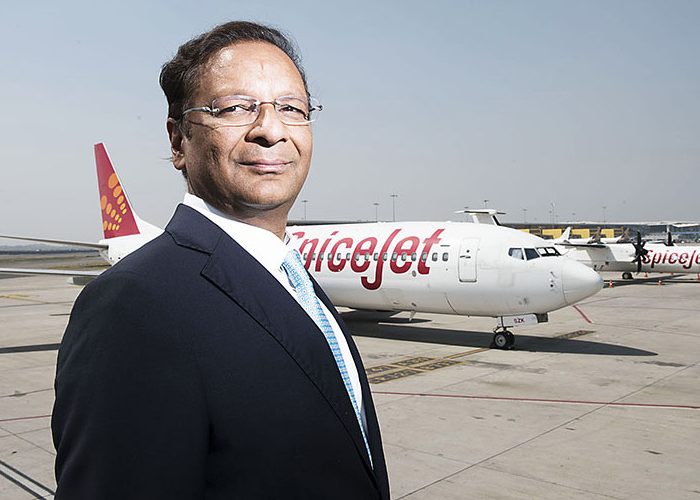
As the airline grapples with safety incidents, Ajay Singh may have to lead from the front for a revival
SpiceJet, which was once a favorite among India’s stock market investors, is now the worst-performing Asian airline, beset, as it is, with all manner of technical glitches and a lot of bad press. The turnaround story of SpiceJet is remarkable- starting from the fact that current owner Ajay Singh bought it off the Marans for Rs2 (for 58.64% of the company’s equity), according to a report in BloombergQuint that cited court papers filed in the dispute between the Marans and SpiceJet.
In India’s aviation industry, Ajay Singh has quite a stellar reputation as a turnaround master. After all, in 2014, when SpiceJet, currently India’s third largest airline by market share, was on the verge of shutting down, Singh had bought the airline before making a turnaround in its fortunes. By 2015, a year after he purchased it, SpiceJet was the world’s best-performing airline stock, after it soared some 340 percent.
Singh had also settled dues of some Rs2,200 crore that the airline owed in debts and built SpiceJet into India’s second-largest airline before a series of woes in the past few months pushed it into some serious turbulence. “You have to give him credit,” says Jitender Bhargava, former executive director of Air India.
Between May and July, the airline saw nine incidents ranging from smoke in the cabin to the cracking of a windshield and an emergency landing in Karachi, prompting India’s aviation regulator to ask the airline to fly at 50 percent of its approved flights for two months. Since May 1, SpiceJet has reported at least nine mid-air technical glitches, forcing it to make at least two emergency landings within weeks- in Patna, Bihar, and Karachi, Pakistan- and making the Indian aviation regulator send a show-cause notice to the carrier.
SpiceJet has until the end of July to respond to the notice and explain to the Directorate General of Civil Aviation why no action should be taken against it. Moreover, the carrier has also reportedly invoked a clause on several occasions that allows an airline to operate a flight even if some non-essential parts are malfunctioning. That notice from the regulator said SpiceJet failed to establish “safe, efficient and reliable air services,” and a number of its aircraft returned to their origin or continued their journey with “degraded safety margins,” according to the missive, a copy of which was posted on Twitter.
For its part, the airline told Bloomberg that it would respond to the notice on time. “We are committed to ensuring a safe operation for our passengers and crew. Last month, all our planes were audited by the DGCA and found to be absolutely safe,” the airline said. It also cited the DGCA as saying that about 30 incidents take place daily, on average. These include go-arounds, missed approaches, diversion, medical emergencies, weather, technical glitches, and bird hits. “Most of them have no safety implications,” it reportedly said. The airline has also faced public backlash, with passengers reportedly canceling their bookings with the carrier following the series of mid-air snags. Clearly, public confidence in SpiceJet has taken a beating.
Market Share
In late 2021, the airline had cash and cash equivalents of just Rs 72.9 crore and total debt of Rs 9,750 crore. It has also suffered three straight years of losses totaling Rs 2,250 crore. The DGCA is looking into SpiceJet’s finances and said that it had found
The SpiceJet promoter is not new to dealing with crises. As the airline grapples with safety incidents, the wily businessman will have to lead from the front for a revival. Experts wonder where the cash will come from to stabilize the airline.











